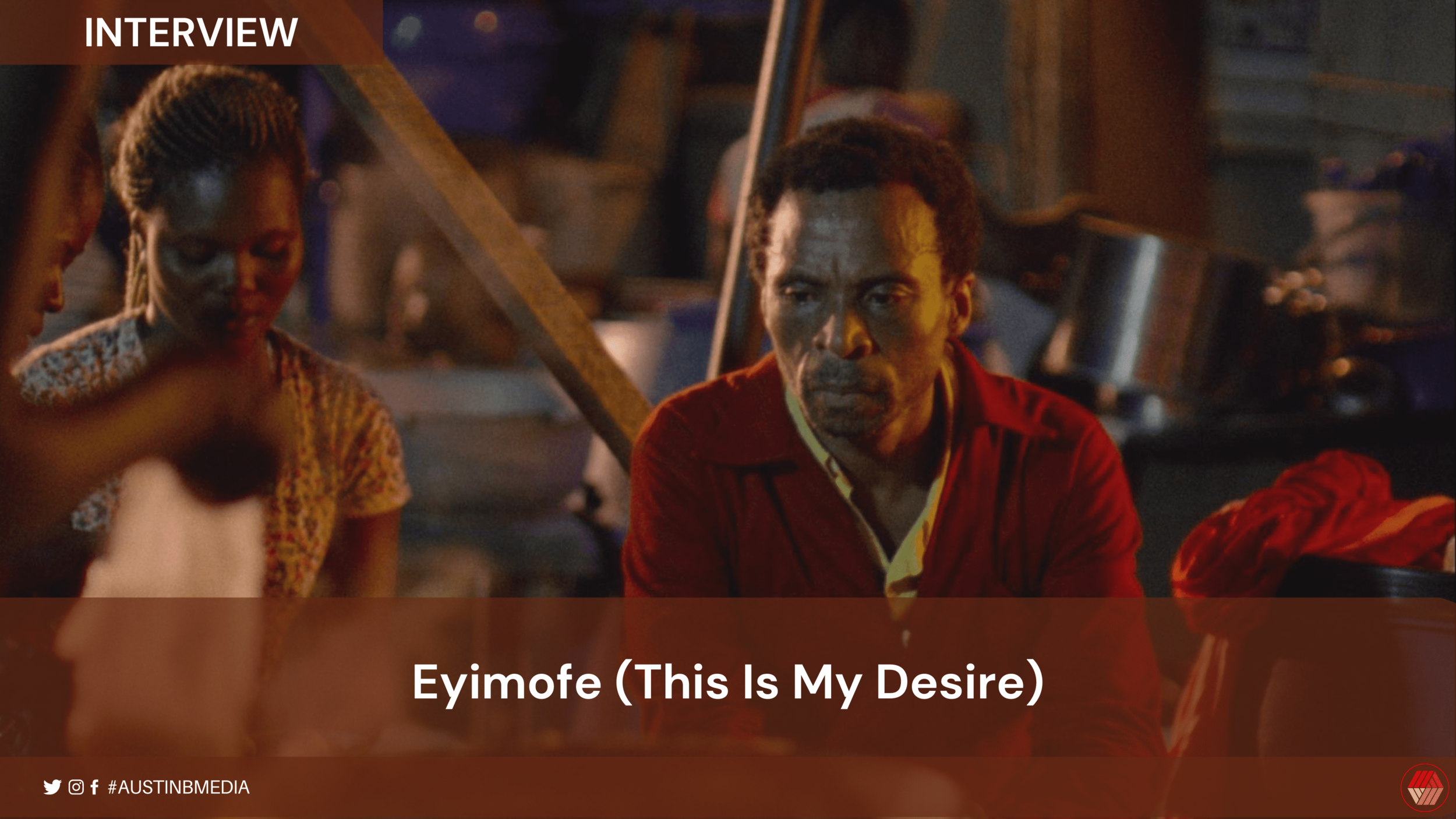AFI Fest Interview: Arie & Chuko Esiri Talk Eyimofe (This Is My Desire)
Arie and Chuko Esiri’s debut feature film Eyimofe (This Is My Desire) tells a beautiful story of two Nigerians planning on emigrating from Lagos to America. The film pays immense attention to detail on how this process works, why someone would want to leave their home, and what happens when they make it to their new home, portrayed through the performances of Jude Akuwudike and Temi Ami-Williams.
During last week’s AFI Fest, I caught up with Arie and Chuko Esiri on the day of its AFI Fest premiere to discuss the process behind the film.
Hello, my name is Austin Belzer from Austin B Media, and I want to spend some time to talk about your film Eyimofe (This Is My Desire), which I literally just got done watching before I hopped on this call. I want to ask, what was the inspiration behind Eyimofe?
CHUKO ESIRI: Uh, yeah. So, 8 years ago, the story came to me after we traveled back home.
Awesome. In this film, we repeatedly see Mofe working, even when he’s off the clock. Is that something that you experienced in Nigeria?
CHUKO: Absolutely. Lagos is very competitive. You have a main job & a side hustle.
The cinematography is gorgeous! What did you look to inspire the look of Eyimofe?
ARIE: What do you mean? Like how we shot it?
Yeah.
ARIE: For us, with regards to staging it, we wished to do it in a way that allowed Lagos to take part in this story as our third protagonist. It was really to let life continue behind the drama of the scene or whatever it was we wanted to capture. Some of the places we went to, like the markets, we would shoot from a long distance on a telephoto lens and have our actors meander through it and interact with people. So that was very improvisational.
And the rest of it – you know, people shaving in the background, or selling bread – those were all things that were taking place in real life whilst our characters were on whatever point in their journey they were at.
CHUKO: We were very heavily influenced by New Taiwanese cinema – especially the work of Edward Yang and Hou Hsiao-hsien – and what those films… what I think they do so spectacularly – the way they are composed, the rhythms, and the way they frame their locations – after a while it frees the viewer to be involved with the characters. It kind of desensitises you to the alien or the foreign nature of the place you’re in. That is Nigeria; it’s just colours. Even our crows aren’t black. We wanted that to be present.
I mean it’s going to be anyway once you put the camera in certain places.
Money is a character of its own nature in the film. It’s this force working in the background. How did you approach depicting the migrant experience through this invisible force?
CHUKO: Well, I think in everything, really, financial freedom equates to freedom. It naturally felt like something that we wanted to explore.
What films would you recommend people see? It can be from this year or something that holds a special place in your heart.
CHUKO: In general, I think foreign cinema is so ignored. I’d recommend EE by Edward Yang, Fireworks Wednesday, and A Screaming Man.
ARIE: I would recommend Priceless from France.
Awesome! I’ll have to check those out. Before I go, I actually want to give you both some recommendations from AFI Fest. If you can check out The Intruder, Tragic Jungle or Luxor, I’d recommend them. They’re not all great, but The Intruder has some decent horror vibes, Tragic Jungle is a nice character study and Luxor is just this crazy romance drama set in Egypt.
CHUKO: Luxor? What is that?
That’s the one with uh, Andrea Riseborough.
CHUKO: Oh, nice. I’ll have to check that out.
Yeah, I highly recommend it.
Well, I want to thank you both for your time. I really appreciate you taking the time to talk with me about your film.
CHUKO & ARIE: No problem.


